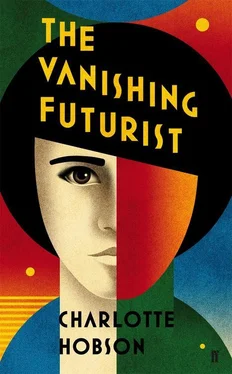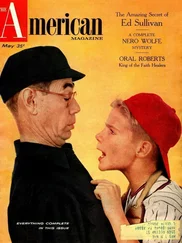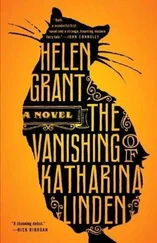Revolutionary Development
Nikita Slavkin
In the village. Dirt, darkness, old bearded fellows, bitter women, fights breaking out on holidays. Poor, tired mother – babies hanging off her like leeches. Black-faced father, beard like a goat.
Age six I wander into the taiga for the day. Wide open skies, Siberian beauty and wildness all around. Happily eat raspberries, fall asleep by a brook. At home my father is waiting with a whip. My mother screaming at him not to kill me. I lie in bed for a week. At school my teacher – Alexei Yurievich Samarin – a political exile, intelligent fellow, teaches me to fish. I hide at his house many times. Gain the idea that education + intelligence = escape from Father.
Every Sunday to church. My family are Popovtsy, Old Believers. Endless droning choir, deathly boredom. I gaze out of window, dream of fishing. They beat me for not paying attention. Next week I fix my eyes on iconostasis – ugly, gloomy. Only one thing I like in that church – a strange cup, dark silvery metal. Priests carry it to and fro, I don’t know why. It gleams in an odd way. Cannot stop staring at it. Later am rewarded by Mother for good behaviour – a candied plum.
Week after week gaze at this cup (despite no more plums). At last can’t stop myself – I have to touch it, know how it feels. At end of service, sneak through forbidden door in iconostasis, reach up to take cup from altar . . Shrieking, hollering begins. I run for my life through village to Alexei Yurievich’s house, hide there for four days. Great scandal of village, neighbourhood, whole world, apparently. Boy profanes Holy Grail!
Alexei Yurievich and I go to my father to apologise. He slams the door in our face. ‘He’s no son of mine.’ I live with Samarins for two years until begin Gymnasium (secondary school) in Yekaterinburg.
Until I go away to school, my mother meets me secretly each week. I plan to take her away with me when I am grown up. I am thirteen when I receive a letter from my aunt: ‘Your mother’s dead…’ Something about the Lord’s Will.
In the town museum of Yekaterinburg I see the silvery metal again: ‘Iridium. The second-most-dense metal on earth, and the most resistant to corrosion, common in meteorites but very rare on our planet – because, being so heavy, it sank into the molten core of the earth during its early stages of development. Iridium can withstand temperatures of up to 2,000 ºC, is nearly unmalleable and very hard.’
I meet Socialists in Yekaterinburg, good people, like Samarins. Science and the Revolution fuse in my mind. I train myself to study eighteen hours a day and eat only once. No warmth in my life until I arrive in Moscow. The great city, traffic, shops – for some months my mouth permanently open. I discover stale rusks, half a kopeck a bag. I meet Mayakovsky, Burliuk – stop myself from pinching them to check they are not statues.
At last, Pasha Kobelev swims at me out of the crowd. ‘How about an ice-cream?’ At the ice-cream stall, advertisements – ‘Duchess papyrosy – as smooth as satin’, ‘Negro coffee – the exotic taste’ – we laugh like idiots. I never saw the need of a friend before – limited, perhaps, but efficient. I move in with the Kobelevs. Life begins.
* * *
The first anniversary of the October Revolution was to be celebrated with all the scale and pomp that the actual event had lacked. The Commissariat of Enlightenment planned a blaze of red flags, great crowds of singing schoolchildren, increased rations and free meals for the people, the hammer and sickle everywhere, and the face of Lenin against snowy roofs and buildings.
Pasha reported on the preparations to us in the evenings – the frenzy at Narkompros as entertainments were commissioned, rejected and re-commissioned by competing organising committees; and artists appeared flourishing designs for the huge sets and floats in the Constructivist style; and performers demanded props, fur coats and bottles of cognac without which their acts would ‘simply breathe their last gasp’. An astonishing amount of money had been made available – several million roubles for Moscow alone – and, what’s more, the organisers had been given the right to requisition scarce materials, as Slavkin had already discovered.
On the day itself, the IRT and the Propaganda Machine took part in the Smolensk district procession. Slavkin repositioned the gramophone to blare Stravinsky out into the street, and each of us, dressed as a capitalist, a general, an aristocrat, etc., minced up to the back of the machine. One by one, we were pushed inside by Dr Marina, dressed as Revolution with a flaming cardboard torch and a sword. Once inside the idea was that we would wriggle out of our costumes and emerge jubilant in simple workers’ clothes with cloth caps.
I have never been much of a performer, and my mood was not improved by the fact that the crowds lining the route watched stolidly, only showing excitement when an aeroplane flew overhead scattering propaganda leaflets. ‘Cigarette papers, lads!’ I heard them shouting. I had spent over four hours that morning standing in line to receive the commune’s extra two pounds of bread and fish and half-pound of butter and sugar per person, and I could feel the beginnings of a chest cold.
They were beginning to light the bonfires – there was a huge one on the Lobnoe Mesto, the execution place on Red Square, with a figure of a kulak on top – and fireworks were promised. As the light faded the crowds became more lively; drunken Red Guards shoved and jostled the people as they passed. At last we arrived at the old Governor General’s mansion for the free meal provided for participants – a bowl of thin borscht and some kind of meat rissole, we didn’t enquire too closely what kind of meat. I looked up and down the long tables, at the people ruminating over their miserable food – just like the soup kitchens in Tsarist times. It all felt a long way from any genuine progress.
‘Come,’ said Slavkin, jumping up suddenly. ‘There’s something I want to show you.’
‘Oh, Nikita, we’re too tired,’ cried Sonya.
With relief I joined in. ‘Yes, let’s go home…’
But he glowered at us, almost shoving us in front of him. ‘It won’t take long. Really, you must trust me.’
We followed him down a side street to a tiny church. The gold had been stripped off its domes, no light shone in the windows, but Slavkin led us to a side door and knocked three times – paused – and knocked three times more. The door opened and Slavkin motioned us inside. The door swung shut behind us, leaving us in darkness. I breathed in incense and wax, smoke, old cloth; at last, I made out some shapes around me.
I put my hand out and felt Nikita’s sleeve; he took my arm and tucked it tightly under his, and we shuffled forwards until we were obviously in front of the altar. I looked around quickly; Sonya was somewhere behind, standing alone. A figure – a priest one assumed – was moving about; the swish of his skirts and the occasional clink of one vessel against another suggested that he was performing the offices of the Mass. A shiver passed through me. By a faint glimmer of light from the window behind him we watched him move about behind the altar, mouthing the words. He raised the Host and after a moment signalled for us to kneel. Without a word we did as we were told, one by one. Nikita and I sipped the watery wine, the first time I had taken communion for years; like me, he seemed to shudder with emotion as he swallowed. It burnt my throat and spread out through my body as though it were neat alcohol. My miserable mood evaporated and I was wildly happy. I squeezed Nikita’s hand as we stood and retreated from the altar.
Читать дальше





![Майкл Муркок - Спящая волшебница / The Sleeping Sorceress [= Участь Белого Волка, Рыцарь Хаоса, The Vanishing Tower]](/books/327544/majkl-murkok-spyachaya-volshebnica-the-sleeping-sorc-thumb.webp)






